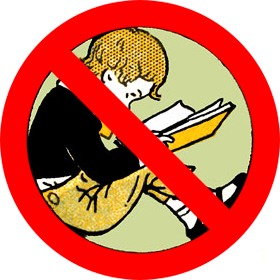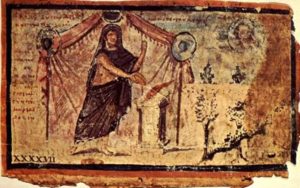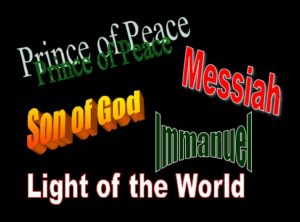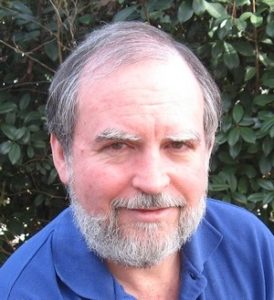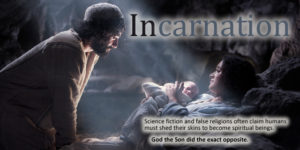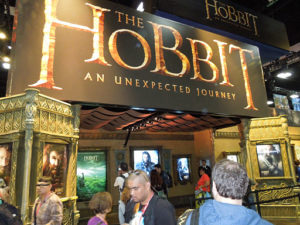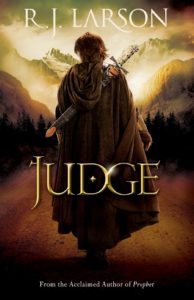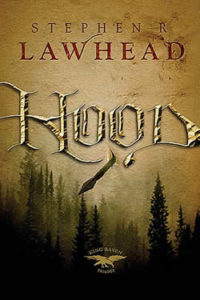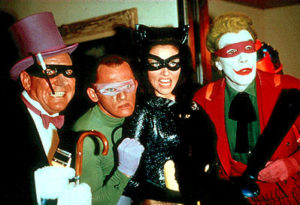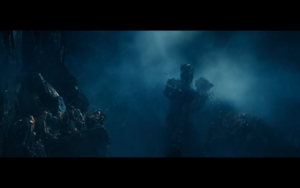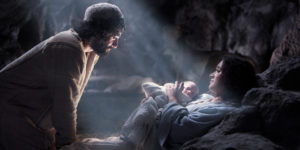New Year, New Anticipation!
John Otte, Jan 2, 2013
Okay, so thanks to being a pastor (which means that I was uber-busy with Christmas), family illness, travel, more illness, a wedding renewal, and a couple of funerals to boot, the elaborate post I had planned for today didn’t come […]
Hold Your Twinkies Loosely!
Christopher Miller, Jan 1, 2013
Happy New Year! Well, we made it folks! I do believe a collective sigh is in order. 2012 (the year that was “doomsday”) is finally in the books and we would do well to count our blessings for a moment. […]
Spec Faith New Year’s Eve/Winter Writing Challenge
Rebecca LuElla Miller, Dec 31, 2012
Here at Spec Faith we’ve had several successful writing challenges in 2012, so what better way to usher in the new year than by holding our winter challenge!
The Echoes Of Christmas
Shannon McDermott, Dec 28, 2012
God is the Author of the Christmas story. I wonder how far its echoes can, and should, reach in all stories. What would a story look like, written in a spirit that, like Scrooge, honors Christmas and keeps it all the year?
How To Ruin Your Childâs Reading
E. Stephen Burnett, Dec 27, 2012
Sick of diets, better scheduling, new workout plans, or commitments to take up a hobby? Why not instead consider a new New Yearâs resolution: discouraging your children from enjoying reading and stories â possibly for life!
Ode To Verse
Yvonne Anderson, Dec 26, 2012
From Yvonne Anderson: âI think you never hoped to see / A poem on this blog by me. / Although the topic hereâs Spec Fic, / My conscience feels no twinge or prick. âŚâ
What The World Doesn’t Know About Christmas
Rebecca LuElla Miller, Dec 24, 2012
The end of the Mayan calendar notwithstanding, another Christmas is approaching–celebrating the ultimate Reveal, the greatest ah-ha moment since time began..
How Storytelling Conveys Truth Better Than Non-fiction
R. L. Copple, Dec 21, 2012
I would suggest that what plagues much Christian fiction isn’t so much the desire to convey theological truths, but the mixing of non-fiction with fiction. Both forms are valid and have their place, but when they are mixed into a story, the result tends to be a story that isn’t engaging and/or sloppy/incomplete teaching.
Incarnation, Part 3: Conception
E. Stephen Burnett, Dec 20, 2012
How did Jesus experience the incarnation? Did He sense an existence-shattering perception shift as He âstepped into timeâ? How else can we, based on Godâs Word, speculate on the incarnation?
The True Story Of Christmas
John Otte, Dec 19, 2012
I’m back with another video. Let’s talk Christmas, folks!
Writing In The Raw
Christopher Miller, Dec 18, 2012
Author Christopher Miller: Confession time. Writing doesn’t come easy for me. There, I’ve said it. So you can imagine my shock and surprise when asked to join as a regular contributor to the Speculative Faith blog.
Seeking A Better Country Than Middle Earth
Rebecca LuElla Miller, Dec 17, 2012
Watching Peter Jackson interpret J.R.R. Tolkien is like watching a master jazz impresario play Beethoven. The original is classic; the interpretation as a new work is equally brilliant.
Speculative Fiction And The Spiritual Journey
R. J. Anderson, Dec 14, 2012
As devotees of speculative faith-based fiction, our genreâs cultural âneutralâ ground should inspire us to literally move readers to consider their individual spiritual journeys. If, as readers, we find a great spec-fiction book that sends us digging through the scriptures, or pursuing a more active and honest relationship with our Creator, then we should share that book with our agnostic/atheist/lukewarm-believer friends.
âThe Hobbitâ Story Group 6: Out Of The Frying-Pan Into The Fire
E. Stephen Burnett, Dec 13, 2012
(How) do you plan to see âThe Hobbit: An Unexpected Journeyâ? Be prepared for the film to climax with an expanded version of the bookâs chapter 6, âOut of the Frying Pan Into the Fire.â
Incarnation, Part 2: Hero In The Flesh
E. Stephen Burnett, Dec 13, 2012
Some stories rebel against Godâs order of salvation; yet others do echo or even celebrate the Heroâs incarnation. Why does incarnation truth captivate us, and how does it inspire real and imaginative worlds?
In Which I Take The “Wrong Vehicle” Out For Another Spin
Yvonne Anderson, Dec 12, 2012
A week and a half ago, Mike Duran contended that fiction is the wrong vehicle for theology. That generated a wonderful discussion, but I didnât enter into either conversation because I needed time to craft a careful response. Which Iâll attempt today.
âThe Hobbitâ Story Group 5: Riddles In The Dark
E. Stephen Burnett, Dec 11, 2012
âThe Hobbitâ chapter 5, âRiddles in the Dark,â marks a turning point in the careers of not only Bilbo Baggins, but J.R.R. Tolkien.
New Spec Faith Columnist
Rebecca LuElla Miller, Dec 11, 2012
We’re happy to announce that our new Tuesday columnist here at Spec Faith, starting a week from today, is Christopher Miller, co-author with his brother Allan of the Hunter Brown middle grade/young adult fantasy series (Warner Press).
What Constitutes âDerivativeâ?
Rebecca LuElla Miller, Dec 10, 2012
Some scholars claim J. R. R. Tolkien owed a debt of influence where he claimed none. I find this criticism to be thoroughly ironic because the great accusation against writers of high fantasy today is that their work is derivative, a mere shadow of, you guessed it, J.R.R. Tolkien.
Preference V. Weakness
Keanan Brand, Dec 7, 2012
Reader differences go far beyond genre or gender. Each person brings his or her own preferences, prejudices, expectations, beliefs, experiences, and assumptions to the story.
Incarnation, Part 1: Eternal Entity
E. Stephen Burnett, Dec 6, 2012
Science fiction and false religions often insist that humans must change from physical to spiritual beings. But God the Son did the exact opposite.
What Makes A Villain?
John Otte, Dec 5, 2012
John Otte has villains on the brain today. He’s trying to figure out what makes a villain truly effective in a story. Stop by and help him figure it out.
âThe Hobbitâ Story Group 4: Over Hill and Under Hill
E. Stephen Burnett, Dec 4, 2012
Reviewers, publishers, and readers keep making up Middle-earth myths, including the notion that it canât have âstone-giants,â as mentioned in âThe Hobbitâ chapter 4.
Why Fiction Is The Wrong Vehicle For TheologyâA Rebuttal
Rebecca LuElla Miller, Dec 3, 2012
Rather than shying away from the depiction of âtheologyââby which I mean knowledge about Godâin speculative fiction, I think Christian writers should embrace the challenge. In saying this, however, I do not believe all stories must show all the truth contained in the Bible, nor do I believe that our stories must affirm all Biblical moral values (as if Christians even agree on what those are).
Why Fiction Is The Wrong Vehicle For Theology
Mike Duran, Nov 30, 2012
I suggest that this expectation of âright theologyâ in our fiction not only keeps writers creatively hamstrung, it keeps Christian speculative fiction from reaching a larger swath of more serious genre readers.
Christmas: The Gritty Reboot
E. Stephen Burnett, Nov 29, 2012
First it was a simple, cozy, possibly golden-glowing A-frame stable, then a slightly dirtier cave-stable, and then worse overnight lodging for poor Mary and Joseph. Why do people keep gritty-rebooting the first Christmas?
Welcome: You Have Now Entered The Holiday Season
Yvonne Anderson, Nov 28, 2012
Experience tells us a holiday is frequently accompanied by social panic, financial insolvency, gastric disturbances, and familial discord. Good times!
Exit, Stage Left…
Fred Warren, Nov 27, 2012
This will be my last post as a recurring columnist at Speculative Faith.
Holidays And Celebrations
Rebecca LuElla Miller, Nov 26, 2012
J. K. Rowling was not alone in making use of this-world holidays. C. S. Lewis created a powerful, and Christian, message in The Lion, the Witch, and the Wardrobe by referencing the fact that Narnia suffered under a never-ending winter–always winter and never Christmas.
The Power Of Christian Fiction
Chuck Black, Nov 23, 2012
Kingdom Series and The Knights of Arrethtrae series author Chuck Black: The spectrum of Christian fiction literature is broad. Does it have the power to change lives? How responsible is the author for his workâs influence? How far is too far?
























